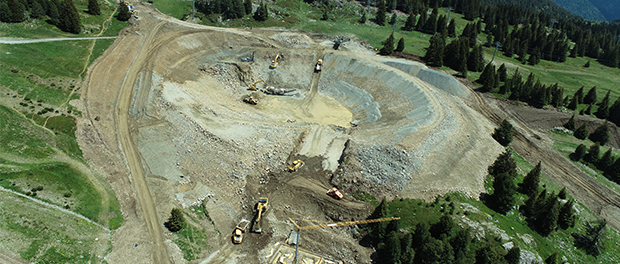European construction industry updates set for 2025

Over the last 12 months, the European construction industry has undergone significant change. Driven by advances in technology, the increasing emphasis on sustainability and evolving safety standards – it has never been more integral for businesses in the sector to adopt new and emerging trends.
With updates to European legislation also coming into play in 2025, including both the EU Data Act and the Corporate Sustainability Reporting Directive, rapid change and adoption of technology has become paramount to the success of construction companies and its projects.
Komastu Smart Construction experts offer insight on the biggest digital and technological changes set for the construction industry this year, and how to be ahead of the curve.
1. Data driven innovation
In March 2025 the EU Data Act will create access to industry data that businesses can utilise to make informed decisions across research and development to create innovative technology that will grow the construction sector across Europe.
Coupled with existing data acts and funding opportunities, this change will contribute to the establishment of an EU single market for data, making the European construction economy stronger.
The new act will drive innovation in operations, production, and supply chain management a
s it identifies the gaps in the sector. Construction companies must harness the power of this data to unlock new efficiencies, improve project management and enhance decision-making processes.
Additionally, the EU sustainability reporting requirements will push companies to disclose carbon emissions data, encouraging the adoption of environmentally responsible practices and further integrating data-driven solutions, requiring the sector to become a greener industry.
2. Utilising Artificial Intelligence
In 2025, artificial intelligence (AI) will be at the forefront of construction innovation. AI is already transforming project management by predicting timelines, identifying risks, and recommending real-time adjustments.
As legislation comes into play to make construction a safer sector for all, tools to support actions such as virtual terrain mapping will be integral to practices in 2025. Bart Vingerhoets, Senior Commercial Manager at Komastu Smart Construction, also expects the adoption of digital tools to increase, particularly through programmes such as the latest Komatsu Smart Construction Edge evolution, which enables users to remove obstacles – such as machinery and buildings – from drone surveys, reducing the requirement for site visits that could potentially be time consuming and hazardous.
Drones and robotics will play a defining role in major construction projects, making surveying faster, safer, and more accurate. Technology such as AI-powered robots, satellites, and cameras will monitor job sites remotely, improve safety, and streamline quality control. Design automation and resource management solutions will also help cut delays and cost overruns.
Pairing drone technology with advanced software like Dashboard and Edge boosts decision-making, productivity, and cost efficiency by quickly processing data and providing actionable insights.
Smart Construction’s recent project with HB Golf, a specialist construction company in the Czech Republic, has improved the businesses outputs by delivering key data and information in an easy-to-use format.
Technology Manager at HB Golf, Chris Horn, explains how Smart Construction’s Dashboard has allowed his team to work more efficiently and operate on budget: “Drone technology has prevented costly mistakes and saved time from potential reworks. I previously found that a huge portion of my time was spent on surveying which I can now delegate to site managers. My team uses drone data pulled through to the Dashboard system to get an accurate overview of the site and all survey data.”
3. Upskilling to meet industry demands
The construction industry faces a significant skills shortage, with an estimated 1.5 million additional workers needed to fill construction jobs in Europe by 2030*. Upskilling initiatives in digital project management, robotics operation, and data analysis are essential for businesses to meet the evolving needs of the industry.
As the construction sector continues to adapt to new and emerging trends, the workforces’ skill set will continue to shift into 2025, making it crucial that construction workers are able to effectively understand and use digital tools. The adoption of automation, AI, and digital tools is driving demand for a more tech-savvy workforce.
For more information please visit: smartconstruction.io.

